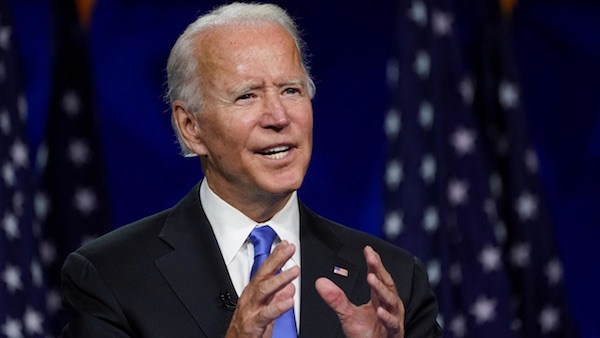
A transatlantic war of words has broken out over the British government’s move to break the Brexit Withdrawal Agreement and its protections for peace in the north of Ireland.
Last week British Prime Minister Boris Johnson introduced the Internal Market Bill, resiling from portions of this year’s Brexit Withdrawal Agreement, which is an international treaty. Earlier this month, Britain’s Direct Ruler in Ireland, Brandon Lewis, admitted in parliament that the legislation would break international law.
Johnson’s move to renege on the Withdrawal Agreement has received a sever backlash from his own Tory party supporters as well as from the Opposition at Westminster.
“Either he wasn’t straight with the country about the deal or he didn’t understand it,” was how Labour figure Ed Miliband summed up Boris Johnson’s approach to the Withdrawal Agreement during a rancorous debate at the London parliament on Monday night.
Former British Prime Ministers John Major and Tony Blair, closely involved in the 1998 peace deal, strongly rejected Johnson’s gaslighting media efforts by writing that “the government’s action does not protect the Good Friday Agreement -- it imperils it”.
US President candidate Joe Biden this week became the highest profile politician to condemn the British move away from the 1998 Good Friday peace agreement when he wrote it “cannot become a casualty of Brexit.”
A rump British establishment responded snidely. Iain Duncan Smith, a former Tory leader, told the London Times: “We don’t need lectures on the Northern Ireland peace deal from Mr Biden.”
A spokesperson for Downing Street was also patronising and dismissive: “We will continue to engage with our US partners on a bipartisan basis to ensure that our positions are understood,” he said.
US congressmen, led by chairman of the House Foreign Affairs Committee Eliot Engel, have been warnig that Washington will veto any transatlantic trade deal if the British government’s actions lead to a hard border. Speaker of the US House of Representatives Nancy Pelosi has sounded a similar warning, as has the chairman of the House Ways & Means Committee, Richard Neal.
US President Donald Trump’s special envoy to Northern Ireland, Mick Mulvaney, has also now warned against creating a “hard border by accident” on the island.
“The Trump administration, State Department and the US Congress would all be aligned in the desire to see the Good Friday Agreement preserved to see the lack of a border maintained,” Mr Mulvaney said.
Mary Lou McDonald welcomed the latest public intervention from key political figures in the US, and noted it was a bipartisan issue that unites US Democrats and Republicans.
“It has become increasingly clear that political figures in the US have a better understanding and appreciation of the Good Friday Agreement than the British government and won’t be swayed by rhetoric from {Tory Foreign Secretary] Dominic Raab,” she said.
“The Withdrawal Agreement is an international agreement; it must be maintained and protected in order to prevent the imposition of a hard border, to protect our economy - north and south - and our peace agreements.”
Mary Lou McDonald accused Boris Johnson of being “very, very reckless” and said his behaviour shows he would “walk away from the Good Friday Agreement”.
She also alleged that the British Direct Ruler Brandon Lewis had deceived the North’s First Minister and Deputy First Minister by denying his government planned to break international law.
“Brandon Lewis met with my colleague Michelle O’Neill and with Arlene Foster, but that certainly was not to brief them on the contents of the bill – in fact, at that meeting he was saying that there was no breach of international law countenanced,” she said.
“The following day, he was up on his feet in the House of Commons saying that in fact they were with their eyes wide open about to legislate in a way that breached international law.”
She predicted the increased turbulence as a result of Brexit could lead to a referendum on a united Ireland within five years.
Ms McDonald said she did not welcome the political chaos of recent years, but suggested it made Irish unification more likely: “It’s actually a huge political opportunity for all of us who live in Ireland to turn the page and really reinvigorate Irish democracy and deliver a new Ireland, so that’s a really exciting prospect.
“The referendum on Irish unity is a key provision of the Good Friday Agreement, so we look forward to achieving that referendum and we look forward to winning it and winning it well. I believe that it will happen certainly within the next five years and if not then within the next decade. That is the timeline that I am working to.”
![[Irish Republican News]](https://republican-news.org/graphics/title_gifs/rn.gif)
![[Irish Republican News]](https://republican-news.org/graphics/title_gifs/harp.gif)

